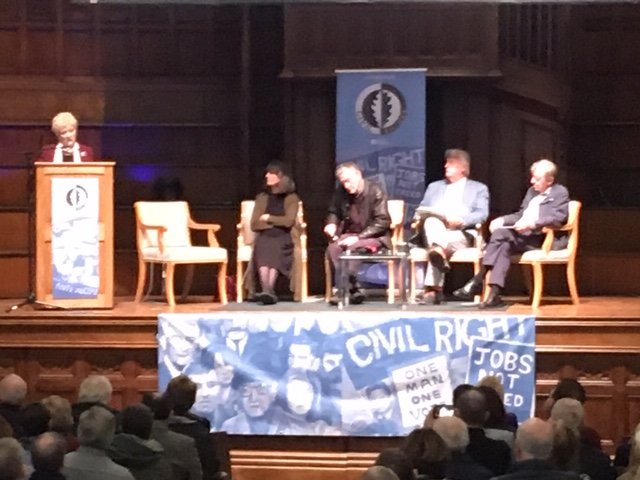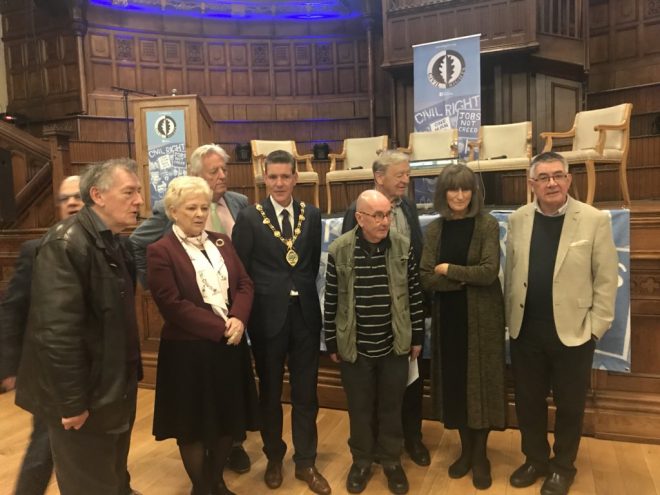
Dame Nuala O’Loan speaking in the Guildhall at the Derry Civil Rights Festival
A public consultation on how to deal with the past ended on Friday.
It proposed that a Historical Investigations Unit – separate from the PSNI – would examine about 1,700 Troubles-related deaths.
It would aim to complete its work in five years.
However, speaking at an event in Derry to mark 50 years since the Duke Street Civil Rights march of 1968, Baroness O’Loan suggested this was an unrealistic timeframe for such a large caseload.
“You cannot deal with thousands of cases in such a short time,” she told a crowd in the city’s Guildhall.
It is not possible, and the government cannot put these limitations on us.”
Baroness O’Loan also said that while prosecutions may be very difficult, there is an obligation.
She added: “It’s important also to say that you can’t, if you like, restrict from investigation cases which were investigated in a very, very unsatisfactory way in the past, and I think it’s important not to put on the individual family the obligation to provide new evidence, because they don’t have the resources or the access to do that.”
The government plans for dealing with the legacy of the Troubles, which include the proposed HIU, have been rejected by a body representing thousands of police officers.
 The Police Federation said on Friday that its members and their families feel abandoned and called for the “ludicrous” proposals to be scrapped.
The Police Federation said on Friday that its members and their families feel abandoned and called for the “ludicrous” proposals to be scrapped.
At the event in Derry, Baroness O’Loan also called on Northern Ireland’s politicians to “get their act together”.
“I fear that the Good Friday Agreement is being eroded by a lack of funding and by a lack of commitment,” she said.
“Sinn Féin and the DUP need to step up to the plate. Day-to-day living and legacy issues are not being dealt with.
“They have a job to do.
“I thought the Good Friday Agreement was the beginning of the end. A lot has changed, but I still think it has been a very long beginning.”
Tags:




